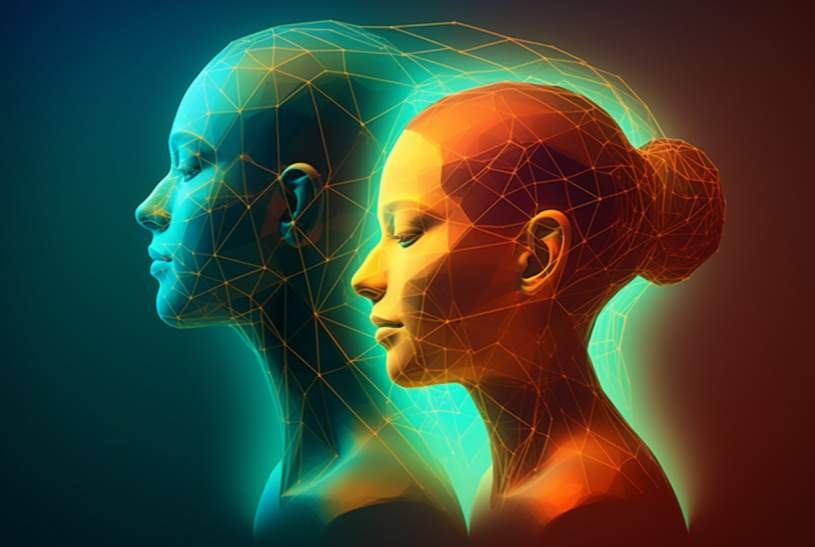The Role of Psychology in Hotel Design

When The Mind Meets The MattressHotels are like the grand stage of human experience. They're where we find respite after long days of travel, where we make questionable decisions at conferences, and where we pretend to be someone else on our way to somewhere else. Hotel design plays a crucial role in our experience, but did you know that there's a whole world of psychology behind it?
Color Me CozyEver wonder why hotel lobbies often have warm, inviting hues? It's because colors can evoke emotions, and designers deliberately choose them based on the desired psychological effect. For instance, warm colors such as red, orange, and yellow are known to create a sense of comfort and coziness, while cool colors like blue and green can have a calming and soothing effect — perfect for that post-conference existential crisis.
But there's more to color than just the basic emotions. Take a closer look at the artwork, upholstery, and accessories in a hotel and you'll often find subtle color accents that elicit specific feelings. For example, a touch of purple can add a sense of luxury and sophistication, while a dash of green might hint at a sense of renewal and freshness. The right mix of colors can create a symphony of emotions that make you feel right at home, or at least distract you long enough from the fact that you're living out of a suitcase.
The Shape of Things to ComeNot only do colors play with our emotions, but so do shapes. Hotel designers use a mix of round, organic shapes and straight, geometric shapes to create a balanced environment. Round shapes are associated with warmth, comfort, and relaxation, while straight lines and angular shapes provide a sense of order and cleanliness. If you've ever felt strangely at ease in a hotel room, you can probably thank the designers for finding the perfect balance of shapes and angles to make you feel like Goldilocks – not too cozy, not too sterile, but just right.
Making the Most of Space
- Designers use space to create an illusion of openness and freedom, even in the most cramped of hotel rooms. They might use floor-to-ceiling windows that let in natural light, mirrors that reflect and expand the room, or recessed lighting that draws the eyes up and creates the impression of a higher ceiling. And if you've ever wondered why there's a pointless nook or alcove in your hotel room, it's likely there to create "breathing room" and prevent claustrophobia.
- Conversely, designers also use space to create intimacy and privacy, which can be particularly important for couples on a romantic getaway or business travelers looking for a quiet place to work or relax. This is accomplished through the clever use of partitions, screens, or curtains, as well as the strategic placement of furniture and accessories. The goal is to create a space that feels like a sanctuary, rather than the impersonal, cookie-cutter rooms found in some hotels.
It's All in the DetailsAs if color, shape, and space weren't enough, designers also employ a myriad of psychological tricks through small details that affect how we perceive a hotel. For example, they might place a bowl of apples at the front desk to evoke feelings of freshness and cleanliness, or use soft, textured fabrics to create a sense of warmth and coziness. Even the choice of artwork can have a significant impact on our emotions – just think of how different a room would feel with a serene landscape painting versus a chaotic abstract piece.
The Scent of SuccessOne of the most powerful and often overlooked elements of hotel design is scent. Our sense of smell is closely linked to our emotions and memories, which means that the right scent can make a hotel feel more inviting and memorable. Designers might use calming scents like lavender or chamomile in guest rooms to promote relaxation, or energizing scents like citrus or mint in public areas to create a lively atmosphere. Some hotels even develop their own signature scent that becomes synonymous with their brand and helps to create a consistent experience for guests. Just imagine checking into your favorite hotel and being greeted by the subtle scent of, say, ginger and lemongrass – it's like a long-lost friend welcoming you with open arms.
Designing for the Human ExperienceHotel design is a delicate balance of art and science, and designers must take into account the psychology of their guests to create spaces that not only look good, but feel good too. From the colors and shapes that evoke specific emotions, to the clever use of space and the subtle power of scent, every detail of a hotel is meticulously designed to create a memorable and enjoyable experience for us, the weary, suitcase-dragging travelers.
So, the next time you find yourself in a hotel lobby, take a moment to appreciate the psychological magic that's been conjured up to make you feel at ease. And if that doesn't work, well, there's always the mini-bar.
|
|







